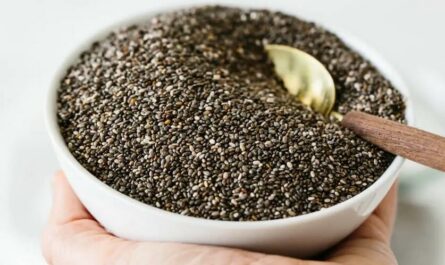Apple cider vinegar (ACV) has gained significant attention in recent years. This amber-colored vinegar has been praised as a natural remedy with a wide range of applications. From aiding digestion to promoting weight loss and managing blood sugar levels, ACV has garnered a reputation as a versatile health elixir. But amidst the hype, it’s essential to delve deeper and ask the important question: Is apple cider vinegar truly good for you?
This article will explore the truth behind the claims surrounding ACV’s health benefits. We will delve into its nutritional profile, and discuss potential risks and side effects. By the end, you will have a clear understanding of whether ACV is a beneficial addition to your health.
What is Apple Cider Vinegar?
Apple cider vinegar is made from fermented apple juice. It undergoes a two-step fermentation process where apples are first crushed and combined with yeast to convert their sugar into alcohol. In the second step, bacteria are added, which further ferments the alcohol into acetic acid, the primary active component of vinegar.
ACV has a long history, dating back to 400 B.C. when Hippocrates, the father of modern medicine, used it for its healing properties. Traditionally, it has been used for various health issues, ranging from sore throats to varicose veins.

Nutritional Value of Apple Cider Vinegar
Apple cider vinegar (ACV) is not only known for its potential health benefits but also for its nutritional value. While ACV is low in calories, it contains a variety of beneficial compounds that contribute to its health-promoting properties. Let’s explore the nutritional profile of apple cider vinegar in more detail.
1. Calories and Macronutrients
ACV is relatively low in calories. One tablespoon (15 mL) of ACV typically contains about 3 calories. This makes it a calorie-friendly option for those watching their calorie intake.
Apple cider vinegar does not provide significant amounts of macronutrients such as carbohydrates, proteins, or fats. However, it does contain trace amounts of certain nutrients.
2. Vitamins and Minerals
ACV contains small amounts of certain vitamins and minerals. The exact nutrient content may vary depending on the brand and processing methods, but here are some of the key vitamins and minerals found in ACV:
- Potassium: ACV contains a small amount of potassium, an essential mineral that plays a crucial role in maintaining proper heart function, nerve transmission, and muscle contraction.
- Other Trace Minerals: ACV may also contain trace amounts of minerals like calcium, phosphorus, magnesium, and iron. While these minerals are present in small quantities, they contribute to the overall nutritional value of ACV.
It’s important to note that ACV is not a significant source of vitamins and minerals. To meet your daily nutrient requirements, it’s essential to consume a well-balanced diet that includes a variety of nutrient-rich foods.
3. The ‘Mother’ in Apple Cider Vinegar
One distinctive feature of some apple cider vinegar varieties is the presence of the “mother.” The mother refers to the cloudy sediment or strands that float in the vinegar. It is composed of beneficial bacteria (probiotics) and enzymes that form during the fermentation process.
The mother is often considered a valuable component of ACV as it contains beneficial compounds. It adds depth of flavor and potential health benefits to the vinegar. While the mother is safe to consume, some brands may filter it out for aesthetic reasons. If you prefer the potential benefits of the mother, look for unfiltered ACV varieties.
The Health Benefits of Apple Cider Vinegar
1. Digestive Health
ACV is often praised for its potential effects on digestion and gut health. It contains acetic acid, which may help improve digestive function by increasing the production of digestive enzymes. Additionally, ACV has been found to possess antimicrobial properties that could help combat harmful bacteria in the digestive system.
2. Blood Sugar Control
Several studies have shown that ACV might have a positive impact on blood sugar levels. It has been suggested that ACV can improve insulin sensitivity and help regulate blood sugar spikes after meals. This can be particularly beneficial for individuals with insulin resistance or type 2 diabetes.
3. Weight Management
ACV has been linked to weight loss and appetite control. Drinking ACV before meals may help increase feelings of fullness and reduce calorie intake. Additionally, some studies suggest that ACV can help boost metabolism, leading to potential weight loss benefits.
4. Heart Health
ACV may have a positive influence on heart health markers. Some research suggests that ACV can help lower cholesterol and triglyceride levels, which are risk factors for heart disease. These effects may be attributed to the presence of antioxidants in ACV.
5. Skin Health
ACV is known for its antibacterial and antifungal properties, which can be beneficial for certain skin conditions. It is commonly used as a natural remedy for acne, as it can help balance the pH of the skin and reduce inflammation. ACV may also be used topically to soothe sunburns or insect bites.
6. Potential Anticancer Properties
Preliminary studies have shown that some compounds found in ACV, such as acetic acid and antioxidants, may have anticancer effects. However, more research is needed to fully understand the potential role of ACV in cancer prevention or treatment.
7. Antimicrobial Properties
ACV’s antimicrobial properties have been studied for their potential to inhibit the growth of harmful bacteria. It may be used as a natural disinfectant for cleaning purposes or as a food preservative.
Risks and Side Effects of Apple Cider Vinegar
While apple cider vinegar (ACV) offers potential health benefits, it’s important to be aware of the risks and potential side effects associated with its use. ACV is highly acidic and can cause adverse effects if not used properly or in excessive amounts. Here are some potential risks and side effects to consider:
1. Tooth Enamel Erosion and Dental Issues
ACV’s high acidity can erode tooth enamel over time. To protect your teeth, it’s crucial to dilute ACV in water or other liquids and avoid drinking it undiluted. Additionally, rinsing your mouth with water after consuming ACV can help minimize the acidity’s impact on tooth enamel. If you have existing dental issues or concerns, it’s advisable to consult with a dentist before regularly consuming ACV.
2. Throat Irritation and Esophageal Damage
Drinking undiluted ACV or consuming it in excessive amounts can irritate the throat and potentially cause damage to the esophagus. To prevent this, always dilute ACV in water or other liquids before consumption. If you experience any discomfort or irritation after consuming ACV, it’s best to discontinue its use and consult a healthcare professional.
3. Digestive Issues
ACV’s high acidity may cause digestive issues for some individuals. It can worsen symptoms of acid reflux or heartburn in those with sensitive stomachs or gastrointestinal conditions. If you have a history of digestive issues, it’s advisable to consult with a healthcare professional before incorporating ACV into your diet.
4. Blood Sugar and Medication Interactions
ACV can lower blood sugar levels, which may pose risks for individuals with diabetes or those taking medications that lower blood sugar. If you have diabetes or are taking medications for blood sugar control, it’s important to monitor your blood sugar levels closely when consuming ACV and consult with your healthcare provider to ensure safe and appropriate use.
5. Potential Drug Interactions
ACV may interact with certain medications, including diuretics, laxatives, and medications for diabetes and heart disease. It’s important to talk to your healthcare provider or pharmacist before using ACV if you are taking any prescription or over-the-counter medications to ensure there are no potential interactions.
6. Skin Irritation
While ACV can be used topically for various skin conditions, it’s important to exercise caution and do a patch test before applying it directly to the skin. Undiluted ACV can cause skin irritation, redness, or a burning sensation. If you experience any adverse reactions, discontinue its use and consult a healthcare professional.
7. Delayed Stomach Emptying (Gastroparesis)
ACV may slow down stomach emptying, which can be problematic for individuals with gastroparesis – a condition characterized by delayed emptying of the stomach. If you have gastroparesis or any other gastrointestinal disorders, it’s advisable to consult with a healthcare professional before using ACV.
8. Allergic Reactions
Although rare, some individuals may experience allergic reactions to ACV or the ingredients used in its production. If you develop any symptoms of an allergic reaction, such as hives, itching, swelling, or difficulty breathing, seek medical attention immediately.

How to Use Apple Cider Vinegar Safely and Effectively
Apple cider vinegar (ACV) can be a valuable addition to your health routine, but it’s important to use it safely and effectively to minimize potential risks and maximize its benefits. Here are some guidelines to follow when using ACV:
1. Dilute ACV Before Consumption
ACV is highly acidic, and consuming it undiluted can lead to tooth enamel erosion, throat irritation, and digestive discomfort. To safely consume ACV, always dilute it with water or other liquids. A common ratio is one to two tablespoons of ACV per eight ounces of water. You can adjust the amount to suit your taste preferences.
2. Start with Small Amounts and Gradually Increase
When incorporating ACV into your routine, it’s best to start with smaller amounts and gradually increase the quantity. This allows your body to adjust and helps you determine your tolerance. Begin with one teaspoon or tablespoon of diluted ACV per day, and then gradually increase to one to two tablespoons per day, if desired.
3. Use ACV as a Dressing or Ingredient in Recipes
One effective way to incorporate ACV into your diet is by using it as a dressing for salads or as an ingredient in various recipes. Mix ACV with olive oil, herbs, and other flavorings to create a tangy and nutritious dressing. You can also add ACV to marinades, sauces, and soups to enhance flavor profiles.
4. Consider Preparing ACV Drinks
ACV drinks can be a refreshing and convenient way to consume ACV. Dilute ACV in water and add a squeeze of lemon juice, honey, or a sprinkle of cinnamon for added flavor. You can enjoy this drink in the morning or throughout the day. However, be mindful of your consumption and avoid excessive intake.
5. Rinse Your Mouth After Consumption
To protect your tooth enamel, rinse your mouth with water after consuming ACV. This helps remove any residual acidity and reduces the risk of tooth enamel erosion. Additionally, consider using a straw when drinking ACV to further minimize contact with your teeth.
6. Consult with a Healthcare Professional
If you have any underlying health conditions, are taking medications, or have concerns about incorporating ACV into your routine, it’s advisable to consult with a healthcare professional. They can provide personalized guidance based on your specific needs and ensure that ACV is safe for you.
7. Store ACV Properly
To maintain the quality and effectiveness of your ACV, store it properly. Keep the bottle tightly sealed in a cool, dry place away from direct sunlight. Proper storage helps preserve its flavor and beneficial components.
8. Be Mindful of Allergic Reactions
While rare, some individuals may experience allergic reactions to ACV or its components. If you develop any symptoms of an allergic reaction, such as hives, itching, swelling, or difficulty breathing, discontinue its use and seek medical attention.
FAQs
Is ACV suitable for everyone?
No, individuals with certain health conditions, such as chronic kidney disease or gastroparesis, should consult a doctor before using ACV. Additionally, excessive consumption of ACV may cause gastrointestinal discomfort in some individuals.
Can ACV cure diseases?
There is no scientific evidence that ACV can cure diseases. It should be used as a complementary treatment rather than a sole therapy. It’s essential to consult with a healthcare professional for proper diagnosis and treatment of any medical condition.
How long does it take to see benefits from ACV?
The time frame can vary for individuals based on their health goals, consistent use of ACV, and overall lifestyle factors. It’s important to maintain a balanced diet and exercise regularly to experience the full potential benefits of ACV.
Conclusion
So Is apple cider vinegar good for you? Apple cider vinegar may offer several health benefits, but it’s not a magical solution. It’s important to use it sensibly and never replace medical treatment with ACV. Remember, ACV is not a miracle cure, and individual results may vary. It’s important to listen to your body and adjust your consumption accordingly. If you experience any adverse effects or have concerns, consult with a healthcare professional.






